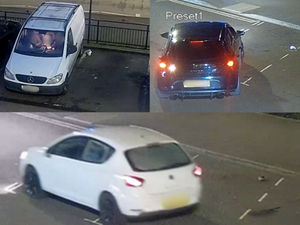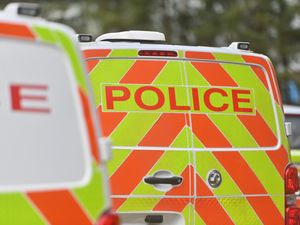West Midlands top cop admits tackling ‘laughing gas’ drivers is “challenging”
Tacking drivers under the influence of ‘laughing gas’ is a ‘greater challenge’, the West Midlands top cop has admitted.
Birmingham councillor Rashad Mahmood raised the issue of the usage of nitrous oxide while driving at the Police and Crime Panel meeting, highlighting fatalities that have occurred across the country.
But Police and Crime Commissioner Simon Foster warned regulating the offence was more difficult than drink and drug driving as the substance leaves the body quickly and he didn’t believe there was a test such as a breathalyser that could be used.
He did however say working with partners such as trading standards to stop the supply and educating people on the health impacts were also vital to help tackle the problem.
The issue arose as members discussed Mr Foster’s draft Police and Crime Plan 2025-2029.
Councillor Mahmood said: “We have in the past tackled drinking driving and the use of drugs whilst driving.
“How are we going to tackle the usage of nitrous oxide gas while driving? This has caused fatalities in the last few years. And how are we going to tackle the businesses which are selling nitrous oxide gas?”

Mr Foster said: “Improving road safety is a top priority within this plan.
“You might be aware the government recently legislated, a year of so ago, in order to categorise nitrous oxide as a class C drug under the misuse of drugs act 1971.
“The use and possession of nitrous oxide has now been criminalised so to that extent the police have greater powers to take action against those people who are using or are in possession.
“However, in terms of being able to regulate the use of nitrous oxide by people who are driving, my understanding it’s a greater challenge to do that for nitrous oxide than it is perhaps for other drink and drug driving.
“I don’t think there is a test that can be used as there can, for example, in relation to a breathalyser or blood test for drug use.
“There is no equivalent test available for the use of nitrous oxide. I think – and I’m not a medical expert – nitrous oxide leaves someone’s system quite quickly.
“So trying to take action against individuals in those circumstances from a policing point of view is challenging.
“There are a number of different ways in which we can approach this. Firstly, partnership work for example with trading standards.
“Making sure, where as far as possible, that people are not managing to be able to come into possession of nitrous oxide in the first place. So you reduce the supply and availability of it.
“Secondly, a public health approach in terms of awareness and education.
“There are people who have been campaigning very forcefully and impactfully in terms of the potential damage people can do to themselves as a consequence of the use of nitrous oxide together with some highly publicised cases where people have suffered significant medical circumstances.
“There’s a whole variety of different action that has to be taken. Yes, police enforcement. Yes, partnership work and yes, public health as well.”





